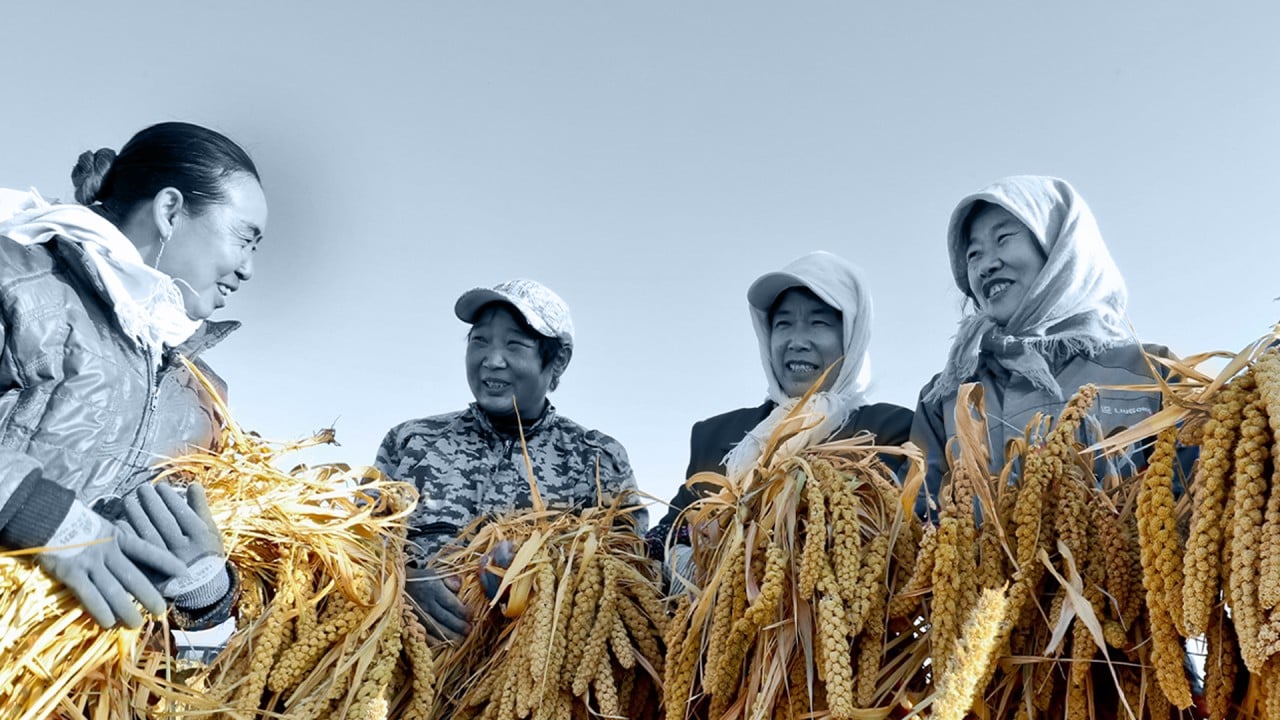Chinese researchers have developed a new rapeseed variety that improves upon typical yields by roughly 50 per cent, an innovation that will aid the country as it looks to buoy its self-sufficiency in vegetable oils and guard against unexpected disruptions to production.
The new crop has a harvested yield of 11.07kg per hectare, representing a potential oil output of around 4.89kg per hectare according to its developer, the Oil Crops Research Institute of the Chinese Academy of Agricultural Sciences.
The yield is 51 per cent higher than the conventional variety, the institute said on Monday.
“The technology can be implemented in winter fallow fields across the Yangtze River Basin and southern regions of China, ensuring the security of the country’s edible oil supply,” the institute said.
The discovery represents the latest advancement in the country’s efforts to build self-sufficiency in seed oils, as escalating geopolitical tensions, trade frictions and extreme weather events pose challenges to food security.
According to the institute, if the variety is widely planted on about 7 million hectares of viable southern fields which normally idle in the winter, it could increase rapeseed oil supplies by about 6.16 million tonnes annually.
The shorter fertility period is an important breakthrough
This widespread cultivation would increase the self-sufficiency rate of edible vegetable oils by 14.5 percentage points, which “is significantly important for ensuring the security of the edible oil supply,” the institute said.
The variety’s fertility period has also been reduced from 170 days to 130 days in southern Guangxi province, which the agency said has addressed a major limitation in rapeseed cultivation in southern China.
“The shorter fertility period is an important breakthrough,” said a professor at Hubei University who asked not to be named.
EU agriculture commissioner wants fresh start for China-Europe food trade
EU agriculture commissioner wants fresh start for China-Europe food trade
“There is an absence of major breakthroughs in rapeseed cultivation in China,” he said. “Due to the lack of mechanised production, farmers see higher production costs and domestic rapeseed prices surpass those of imports.”
The professor said China’s rapeseed production is at risk of decline this year, as extensive rain and snowstorms in February caused many seedlings to perish in key producing regions like Sichuan and Hubei.
“China will rely more on imports this year to meet its domestic demand,” he added.
Last month, securities firm Citic Futures reported that the winter cold damaged 20 to 30 per cent of rapeseed crops in Hubei and Hunan provinces, with the latter representing over 35 per cent of China’s rapeseed acreage. The damage is expected to lead to a decrease in rapeseed production this year.
China relies on imports for nearly 70 per cent of its edible oil, mainly sourced from Canada and Russia.
Beijing has pledged to increase the self-sufficiency ratio of oil crops – including soybeans, peanuts, rapeseed and sesame – from 32 per cent last year to 43.8 per cent by 2032.
According to Shanghai-based commodity consultancy Mysteel, China’s rapeseed imports totalled 513,800 tonnes in the first two months of 2024, a year-on-year decline of 51.6 per cent.
In January and February, 87 per cent of China’s rapeseed imports came from Canada, 10 per cent from Russia and another 2.7 per cent from Mongolia, Mysteel said in a report issued Monday.
China’s edible vegetable oil imports stood at 1.67 million tonnes in the first quarter, a year-on-year decrease of 19.8 per cent according to the General Administration of Customs.



.jpg?itok=t8OJmsoF)